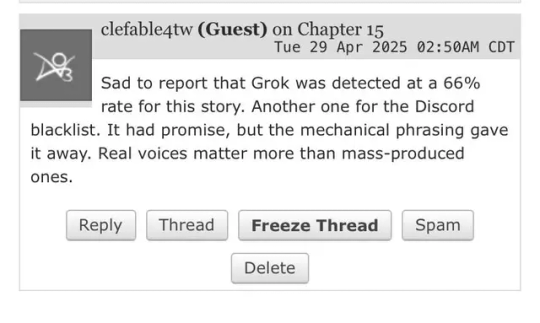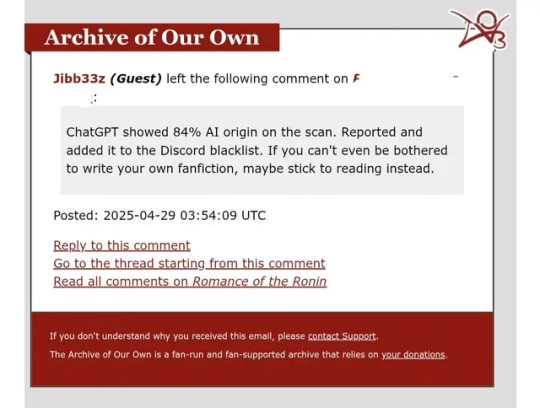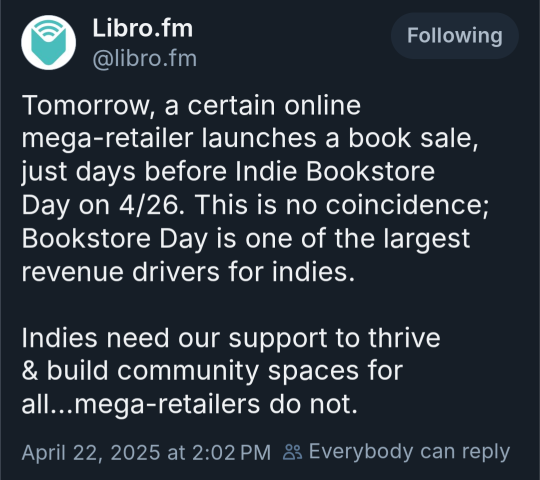♡Bananzer, 20s she/her♡ ♡ask box is always open!♡ (Main @bananzer)
Last active 2 hours ago
Don't wanna be here? Send us removal request.
Text
the other elves welcoming Legolas in Valinor

12K notes
·
View notes
Text

1/3 of the Fellowship
The Dwarfs are very clearly inspired mainly from Old Norse, so that's the main reference for Gimli's dress. There's also some other influences, like some Bronze Age Mediterranean influences and Iron Age Eastern Europe.
To me Tolkien's elves are very high Middle Ages and Gothic, but for Sindar I mixed in plenty of Celtic and especially Irish influence, and based Legolas' dress heavily on Irish léine.
Boromir's dress I based on mostly Byzantine but also some Medieval Arabic influences as I did for Faramir.
4K notes
·
View notes
Text
PSA: Credit Card Phone Scam
(Or, how Tumblr just saved my ass)
I saw a PSA recently about a scam going around with spoofed official numbers calling and asking for information, and how you should hang up and call back using the correct number rather than just go along with what the caller is telling you. But this is Tumblr, so I'll never be able to find the post again.
I decided to make my own, because this literally just happened to me an hour ago. Hopefully my story can spread some more awareness and save other asses the way mine was saved.
Around 7:30pm tonight (Friday), I got a phone call from a 1-800 number. I almost didn't answer it, then I saw it was 1-800-465-4___, and I recognized that as the start of the CIBC phone number, so I picked up.
Me: Hello?
Guy: Hi, is this [MrsD]?"
Me: Yes.
Guy: Hi, [MrsD], this is _____ from CIBC, how are you tonight?
I thought, okay, this is a sales call. Right before I'm about to sit down for dinner. Typical. Mentally, I'm already putting together an exit strategy, preparing to say no to everything and get off the phone ASAP. But then—
Guy: We've just flagged suspicious activity on your CIBC Visa card. It was an online BestBuy transaction for $980.00. Was that your transaction?
Me, flustered: Uh. What? Sorry, how much?
Guy: $980.00 at BestBuy, was that you?
Me: Oh. At BestBuy?
Guy: Yes, your card was used at a BestBuy in [town nearby]. Was that you? Did you go to [town nearby] today? You don't live in [town nearby], right?
Me: Uh. No?
Guy: Okay, so I need some information to verify this transaction.
By this point, my brain had caught on that something about this was hinky. First of all, I thought he said it was an online purchase, then he said it was in person. But maybe I'd misheard, he was talking fast. My second thought was that every other time there was a suspicious transaction, I got an automated phone call and a text message with instructions to call back. I've never had a person call me directly.
My third thought was, well, the phone number on the caller ID was right....
THEN! I remembered a Tumblr post I saw recently, and I remembered what it told me to do.
Me: I'm skeptical about this call. I'm going to call CIBC myself and look into this.
Guy: What? Ma'am, you can just tell me, I can verify—
Me: No. Thank you, but I'll call the number on the back of my card.
Guy, getting more agitated: Ma'am, if you look at the number on your card, you'll see it's the same number.
Me: You know that can spoofed, right?
Guy: Uh— but ma'am—
Me: Sorry, but I need to make sure. I'm going to call CIBC directly.
The guy kept sputtering, but I hung up on him. In that moment, I really didn't think that he was a scammer. In fact, I thought I was being paranoid and was maybe kinda rude to the guy. I wondered if I was being overcautious, and I felt a bit guilty.
I called the number on the back of my credit card, waited 15 minutes for an agent, and told him what just happened.
IMMEDIATELY—
Agent: You didn't tell him anything, did you?
Me: No. I said I wasn't in [town nearby] today, but that's it.
Agent: Good. You did the right thing by calling us, let me look into the transaction for you.
Then, a minute later:
Agent: I'm not seeing any transaction like that. There's no flags on your card, nothing suspicious at all.
Me: So it was a scam?
Agent: Yep. Entirely fake.
I was honestly surprised. I really thought that there was some kind of mix-up and that I would be apologizing to this guy for being rude to his colleague.
Looking back on it now, I can see all the telltale signs of it being a scam call:
Time of day. Early evening on a Friday, chances are people are either sitting down for dinner or in a hurry to get somewhere. In this situation, a lot people probably wouldn't think twice about giving "the bank" some information just to get off the phone. (Joke's on them, I have no life!) But the way that I reacted to his introduction did evoke the desired reaction of Ugh, what now? Leave me alone! that the scammer was banking on (pun intended).
Sense of urgency. The scammer spoke fast, threw details at me quickly, and made sure I knew that I had to give him my information right away. This honestly threw me off. It was overwhelming, and I felt concerned and a bit frantic for a few seconds until I thought about what I know about scams and what I'd just read in that Tumblr PSA.
Complete lack of empathy or understanding about my skepticism/anti-fraud precautions. The last time I had to get a new credit card number due to fraud, the agent I spoke to said things like "I know this is frustrating", "I'm sorry this is a hassle", etc. And of course the CIBC agent I spoke to tonight was immediately grateful that I'd called them directly and reassured me that CIBC would never ask for information. By contrast, the scammer was outright dismissive of my concerns and got agitated when I wouldn't just trust him right off the bat.
Emotional provocation. Similar to #2 & #3 above, the scammer was very good at making me feel things. Worried and fearful at first, then guilty about being suspicious, to the point where I actually apologized to the guy. (Granted, I am Canadian, but still!)
And finally, I cannot stress enough: the spoofed phone number. I am a pretty well-informed person. I keep up with news about scams and whatnot. I know that phone numbers can be spoofed. I've been in front of my phone when it just starts to ring and I can see the auto-dialler number appear briefly before it gets replaced with a number that has my area code. But tonight—early evening on a Friday—I was cooking dinner and my phone was across the room. It had rung several times by the time I got to it. I only picked it up because I recognized the CIBC number. And when the scammer started his spiel, the fact that the number was the same was enough for me to give him just a tiny moment of trust. Had he actually gotten past that first barrier and started requesting my information, I think I would have caught on, because people asking for sensitive information over the phone is a huge obvious red flag. I like to think I would have caught on, anyway. But maybe not! That fake number almost had me.
TL;DR: No matter what the number on your caller ID says—that it's your bank, your energy company, your internet provider, whatever!—if the person on the other end is requesting sensitive information urgently, don't panic. Stop. Think. Then tell them nothing, hang up the phone, and call your service provider yourself using a verified phone number.
18K notes
·
View notes
Text
Wow, now there's a bot going around on Ao3 telling people that the "moderators" will delete works from "deprecated" fandoms and impose bans.
Fearmongering bullshit, but it's fearmongering bullshit that seems to be taking advantage of the recent spotlight series in order to trick authors into deleting their fics.
Just. Why.
What the hell does anyone get out of making these bots.
45K notes
·
View notes
Text
Wow, now there's a bot going around on Ao3 telling people that the "moderators" will delete works from "deprecated" fandoms and impose bans.
Fearmongering bullshit, but it's fearmongering bullshit that seems to be taking advantage of the recent spotlight series in order to trick authors into deleting their fics.
Just. Why.
What the hell does anyone get out of making these bots.
45K notes
·
View notes
Text
In the spirit of encouraging people to comment on fanfics while also making it easier to do so, I feel obliged to share a browser extension for ao3 that has quite literally revolutionized the comment game for me.
I present to you: the floating ao3 comment box!
From what I've seen, a big problem for many people is that once you reach the comments at the bottom of a fic, your memory of it miraculously disappears. Anything you wanted to say is stuck ten paragraphs ago, and you barely remember what you thought while reading. This fixes that!
I'll give a little explanation on the features and how it works, but if you want to skip all that, here's the link.
The extension is visible as a small blue box in the upper left corner.
(Side note: The green colouring is not from the extension, that's me.)

If you click on it, you open a comment box window at the bottom of your screen but not at the bottom of the fic. I opened my own fic for demonstrative purposes.

The website also gives explanations on how exactly it functions, but I'll summarize regardless.
insert selection -> if you highlight a sentence in the fic it will be added in italics to the comment box
add to comment box -> once you're done writing your comment, you click this button and the entire thing will automatically copied to the ao3 comment box
delete -> self explanatory
on mulitchapter fics, you will be given the option to either add the comment to just the current chapter or the entire fic
The best part? You can simply close the window the same way you opened it and your progress will automatically be saved. So you can open it, comment on a paragraph, and then close it and keep reading without having the box in your face.
Comments are what keep writers going, and as both a writer and a reader, I think it's such an easy way of showing support and enthusiasm.
81K notes
·
View notes
Text

"lord take all of faramirs suffering and give it to gollum" -samwise gamgee
1K notes
·
View notes
Text
do you think that once the hobbits got back to the shire they realised they needed to slow their walking speed because they'd gotten used to walking a lot quicker around the tall folks for the months of the quest
4K notes
·
View notes
Text
PSA
Just a heads up, there are bots going around on AO3 accusing people of using AI. Considering the timing, this is likely AI bros' retaliation for AO3 users calling them out for scraping their work. Examples of what you might be sent:



Screenshots from here.
If you get a comment like this, just report for spam and delete.
50K notes
·
View notes
Text
AU where Boromir survives but literally nothing changes because they all think he’s dead and he’s still recovering and by the time he’s actually okay again everything important is already over. Like lowkey imagine how fucking funny it would be if during the one scene where Frodo wakes up after destroying the ring and everyone is coming in, Boromir just walks in nervously and Frodo, who is trying to distract from the fact that he very clearly does not know Legolas’ name, pretends to pass out. Everyone is just like “oh dear!”, Sam goes into overprotective mode (“I told you it was a bad idea Mr. Gandalf!”) Aragorn is trying to reassure Boromir that it’s not his fault and that everything will be fine, Merry and Pippin are trying to comfort each other, Gimli and Legolas are just standing awkwardly in the corner because they know nothing about hobbit biology and what normal reactions are for this sort of thing. Gandalf is the only one who knows Frodo is faking it but he says nothing because Gandalf loves drama and being a bitch. Eventually they’re all ushered out to give Frodo more rest, except for Gandalf, who insists on staying to watch over him. After everyone is gone Gandalf tells him he can open eyes, and the first question out of Frodo’s mouth is very much not about Boromir’s miraculous return, or the state of the world, or about what happens to him now, but rather “Gandalf, what the fuck is the elf’s name?”
1K notes
·
View notes
Text
I do wish people knew more about Book!Frodo vs. Movie!Frodo. Like, I love Elijah Wood and I love his performance but Book!Frodo is a lot more scrappy and not quite as pure of heart, despite still being a pretty nice guy. Because it leads to a lot of fanon that because Frodo is quiet and nice, he's therefore helpless, sanctimonious, and childlike.
Like Frodo is probably the most polite of the four hobbits, but he's also the oldest. A lot of his interactions with Merry and Pippin specifically read like he's an older and wiser big brother who enjoys teasing them. The movie kinda acts like Frodo is naive to a lot of Merry and Pippin's hijinks, but the books are clear that Frodo was also out there stealing crops from Farmer Magot, and it was probably his idea in the first place.
He's not above practical jokes, or being petty, or losing his temper. When they first set out from the Shire, a cute character detail is Frodo choosing to wake up everybody in kind of funny ways, scaring Sam awake by making him think he's slept in and is late for work, and yanking Pippin's blankets and basically rolling him down a hill. He's king of veiled insults and trying to let out his depression in funny ways like saying "Let's not worry about tomorrow, it probably won't come." Like when Sam thinks Frodo's messing with him when he starts saying Sam should be called the Stout-Hearted, it's not like there isn't a precedent for that kind of thing.
The movie also omits a lot of Frodo's badass moments and qualities, like when he manages to just barely cut the Witch King of Angmar on Weathertop, or when he makes his stand at the River while being chased by Nazgûl, or when he slices off the arm of the Barrow-wight, or when he confronts Sarumon. He also is the only of the four hobbits who can speak some elvish and is definitely the most worldly because he's spent so long with Bilbo. Usually most of the hobbits look to Frodo for advice or guidance.
And to be clear, he is nice and modest and very polite and compassionate towards others. Like he's always making an effort to be kind. But he has layers, and is a mature adult who I think is reduced by a lot of his sweet cinnamon roll characterization. In actuality he's more like cool older bro who lets you stay up late when he babysits and who's trying not to let anyone else know he's in the middle of a break down.
4K notes
·
View notes
Text
2K notes
·
View notes
Text

I gotta practice drawing people kiss and it's their turn
849 notes
·
View notes
Text
I miss when I would get Tumblr asks that actually said things and weren't just digital panhandling scams.
47K notes
·
View notes
Text

Bsky post by libro.fm: Tomorrow, a certain online mega-retailer launches a book sale, just days before Indie Bookstore Day on 4/26. This is no coincidence; Bookstore Day is one of the largest revenue drivers for indies.
Indies need our support to thrive & build community spaces for all...mega-retailers do not.
--
Fuck Amazon. Go to bookshop.org or better yet, take a little time on Saturday to visit your local indie bookstore.
23K notes
·
View notes
Text
People who hate Frodo Baggins are my enemy. "He didn't do anything and was useless"--yeah, okay, so what you're not understanding is that he was the sacrificial lamb. He endured physical, mental, and emotional torment that got worse and worse as his will broke. Everyone knew this. EVERYONE KNEW THIS. That's why everyone was devastated about it. Because Frodo was the most innocent among them, that was the entire point. He represented ordinary peaceful people being destroyed by the horrors of war. And as a hobbit he also represented some of the last vestiges of magic in what was basically a post magic apocalypse.
Frodo was basically an innocent puppy thrown into the Torment Nexus so that EVERYONE ELSE could maybe have a hope of surviving. And he did that willingly. HE DID IT OF HIS OWN FREE WILL, KNOWING IT WOULD RUIN HIM.
Frodo haters won't see the light of heaven
24K notes
·
View notes



